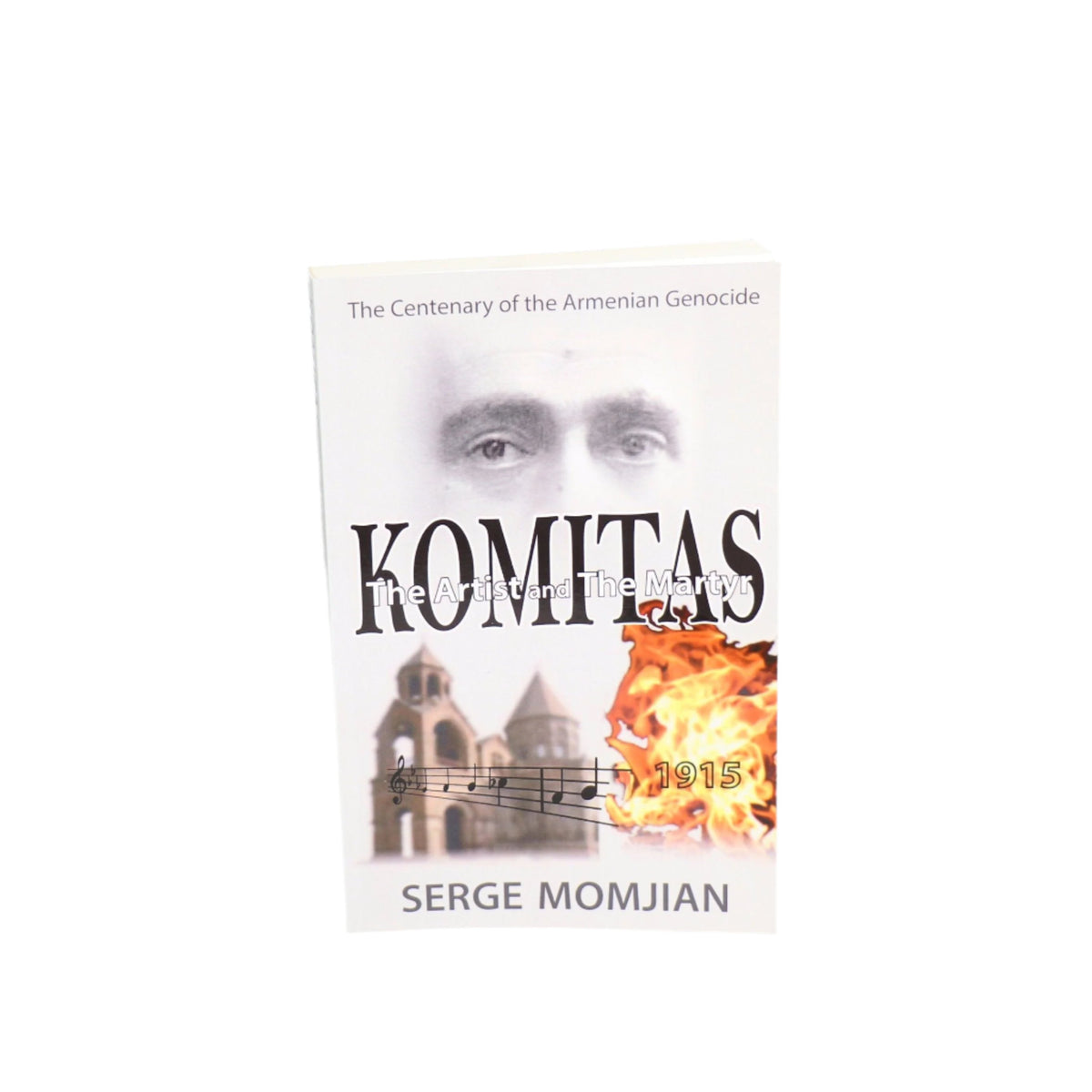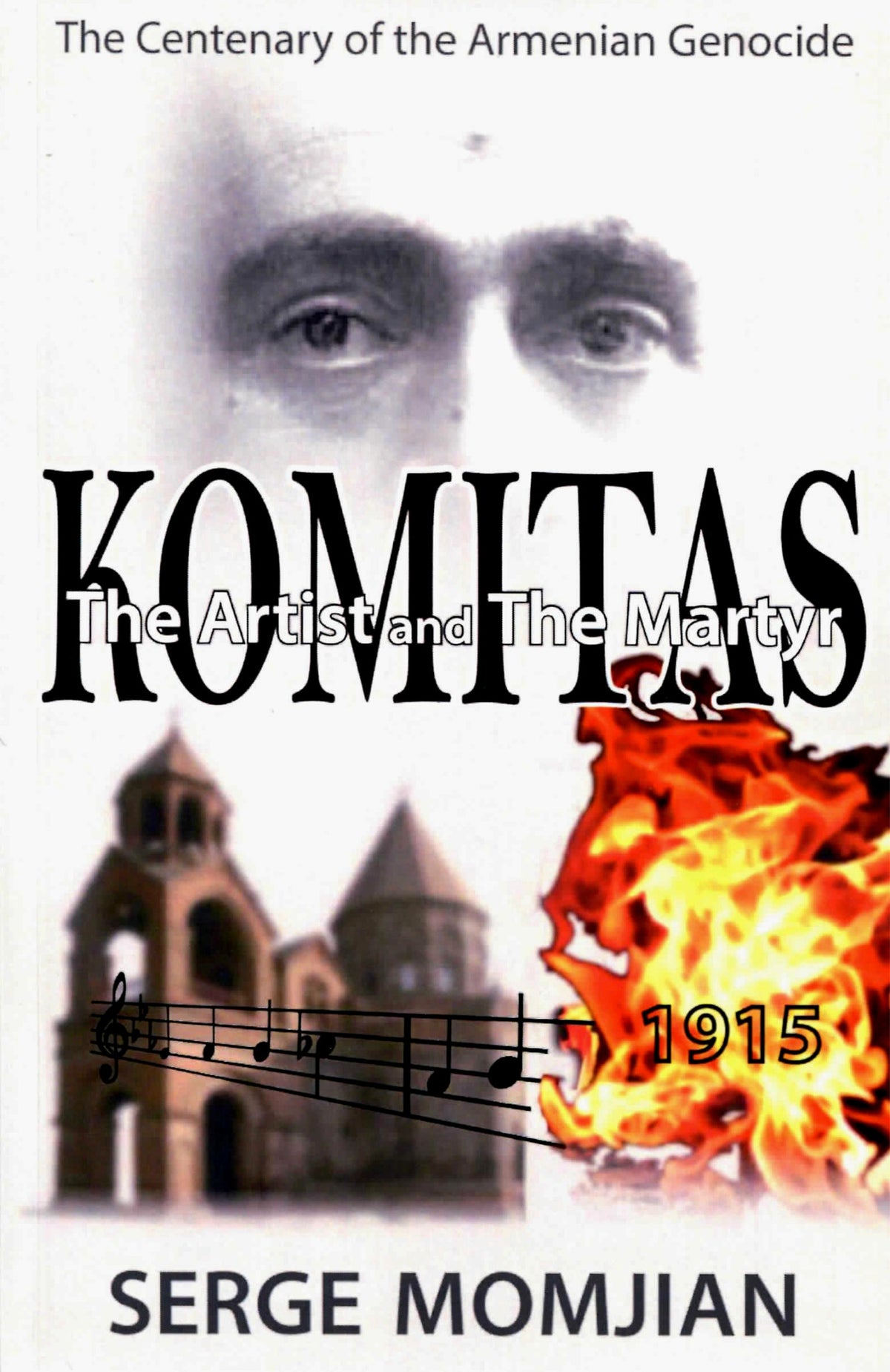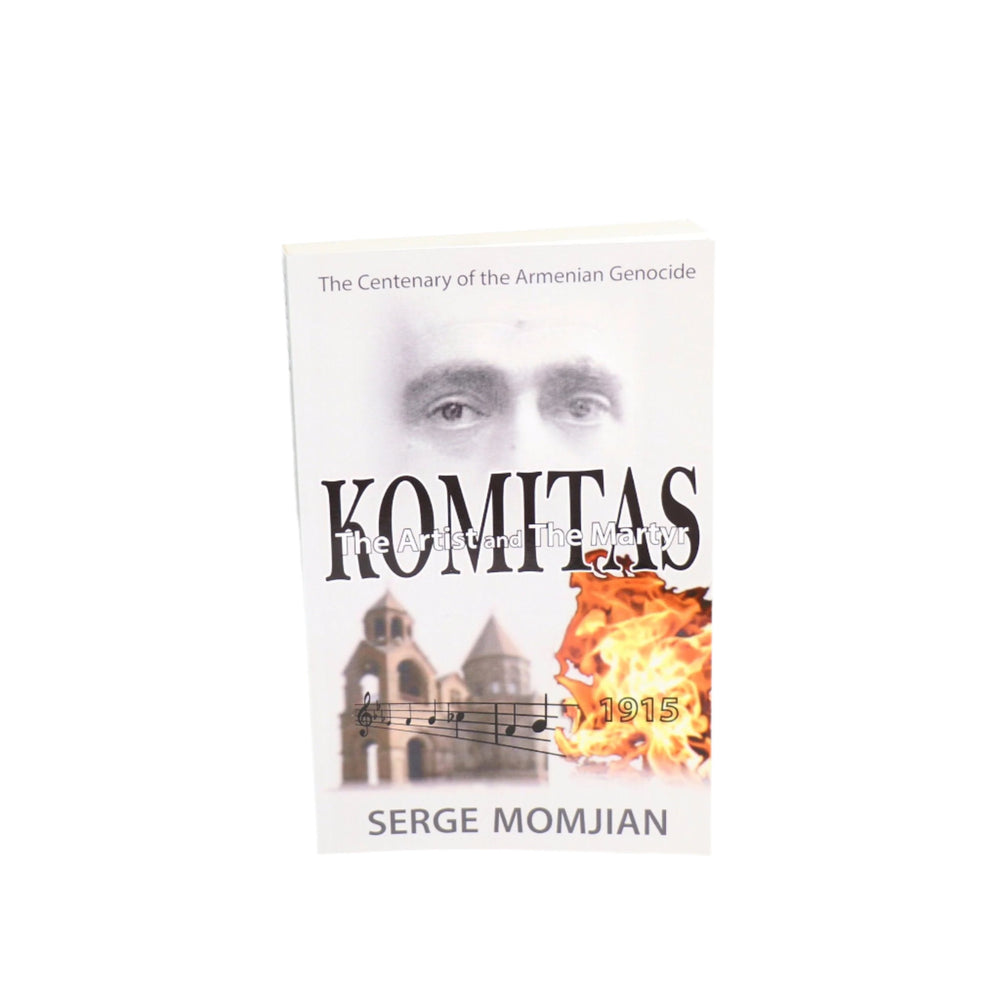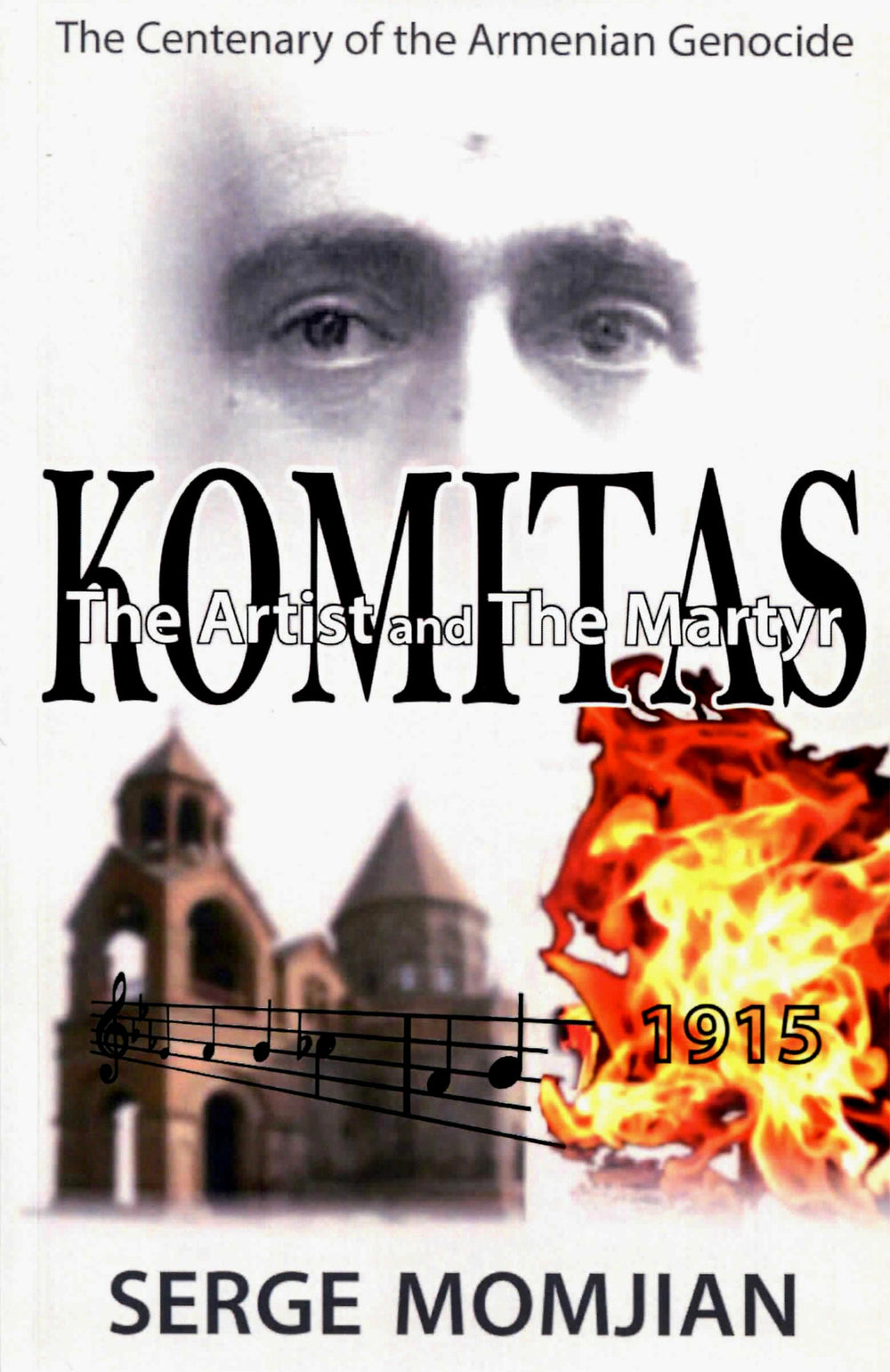By Serge Momjian
Komitas is a skillful artist-priest who tours the remote villages in his homeland, collecting and transcribing folk songs. His long, scrupulous research work as an ethnomusicologist enables him to trace the pre-Christian roots of Armenian sacred music, and bring its folk music to a high standard. He lectures on these topics at the International Musical Society, to which he is admitted as the first non-European member. He plays there a crucial role in introducing the unique musical heritage of Eastern cultures to the West. Although he is a celebrity musician and his lectures and songs are widely acclaimed, his secular performances of sacred music in his homeland and abroad put him on a collision course with the conservative clergy of his church, opening the gates of hell upon him. On the night of 24 April 1915 known as Red Sunday Komitas was arrested along with 200 Armenian intellectuals and community leaders and deported far inland by the Ottoman government as a prelude to a premeditated plan to annihilate the Armenian population of Anatolia. Though he is among the few who are reprieved, the terrible nightmare he has experienced, from which he never mentally recovers, takes him into asylums, where he spends the last twenty years of his life in seclusion, his complex inner world governed by the ineradicable images of his past. This compelling book, based on concrete facts and events and written in commemoration of the centenary of the Armenian Genocide, serves to make past periods and people come alive in an entertaining dialogue.
- Gallery
- Description



By Serge Momjian
Komitas is a skillful artist-priest who tours the remote villages in his homeland, collecting and transcribing folk songs. His long, scrupulous research work as an ethnomusicologist enables him to trace the pre-Christian roots of Armenian sacred music, and bring its folk music to a high standard. He lectures on these topics at the International Musical Society, to which he is admitted as the first non-European member. He plays there a crucial role in introducing the unique musical heritage of Eastern cultures to the West. Although he is a celebrity musician and his lectures and songs are widely acclaimed, his secular performances of sacred music in his homeland and abroad put him on a collision course with the conservative clergy of his church, opening the gates of hell upon him. On the night of 24 April 1915 known as Red Sunday Komitas was arrested along with 200 Armenian intellectuals and community leaders and deported far inland by the Ottoman government as a prelude to a premeditated plan to annihilate the Armenian population of Anatolia. Though he is among the few who are reprieved, the terrible nightmare he has experienced, from which he never mentally recovers, takes him into asylums, where he spends the last twenty years of his life in seclusion, his complex inner world governed by the ineradicable images of his past. This compelling book, based on concrete facts and events and written in commemoration of the centenary of the Armenian Genocide, serves to make past periods and people come alive in an entertaining dialogue.


